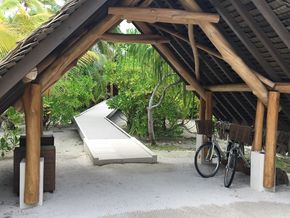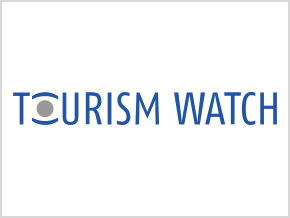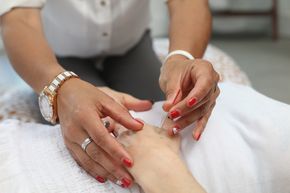From December 2021, borders have slowly re-opened in Pacific island states and tourists are once again filling many sun, sand and sea resorts. Life seems to have returned to ‘business-as-usual’, but not all people are as entranced by the tourism sector as in pre-pandemic times.
Coping without tourism revenue
The pandemic has adversely affected tourism globally, particularly in small island states heavily dependent on tourism. The closure of borders to regular flights for one to two years in places like Fiji, Samoa, Cook Islands and Vanuatu has indebted economies and created a significant financial void in many Pacific island communities.
With borders closed and most island governments unable to afford wage subsidies, many tourism employees left the once-bustling tourist hubs, returning to villages and family settlements. Here, they found both socio-cultural support and alternative livelihood systems. People who had for many years worked as receptionists, chefs, servers and entertainers at hotels and resorts had to adapt to communal village settings, employing new – as well as traditional – strategies to sustain a livelihood by living off their ‘vanua’.
The ‘vanua’
Vanua is a Fijian term which embraces the land and people and their intrinsic inter-connectedness. There are terms with similar meanings in many Pacific countries e.g. ‘fonua’ in Tonga, ‘enua’ in the Cook Islands and ‘whenua’ for New Zealand Māori. Vanua is far more complex and all-encompassing than a western view of land. It includes cultural, social, and spiritual values and beliefs, traditions, history and customs, and it interlinks the natural and supernatural worlds.
To ‘return to the vanua’ often involved a physical journey from a more urbanised, tourism-centric place to a rural village. For those who lived in a village adjacent to a resort, which had closed down due to the pandemic, the return meant that they reconnected spiritually, culturally and materially with their ‘vanua’. They found a place that provides an economic, social and ecological safety net during challenging times.
Effective adaptation
Many Pacific peoples adapted to the pandemic effectively. Although over 73 per cent of respondents surveyed by our team in mid-2020 said they had experienced a 'major decline' in household income, they have in the course of the pandemic also reported that there were many positive aspects associated with border closures.
Growing food on customary land was a major survival strategy. “As for the environment, I see people are respecting the land now – knowing that the land can provide for them and support them”, said a resort employee in Fiji in February 2021. Newly learned or revived skills, such as yam cultivation, fishing using traditional methods, weaving, and traditional oil and soap making, have allowed people to decrease their reliance on supermarkets. Some are using these skills to generate income and barter with neighbouring communities.
Research participants provided us with several different examples of social and communal support mechanisms. Women’s groups organise fundraising events to purchase products for those with no cash income, youth groups help older members of a community. “I was in the village for the past two months, and what I found was that we actually communicate with each other. If there is anything that is a problem for other families, we help them as well. What little we have, we give it to them. We have been looking after each other”, said a former resort employee in Fiji in one of our interviews.
Increased resilience
A Vanuatu tourism official described the pandemic as ‘a blessing in disguise’: “We are now more united”. A former tourism employee in Fiji expressed a similar sentiment: “There was the opportunity to be able to rest, which was something that I really appreciated because I didn’t realise how much mental and physical stress that I’ve put into working in the tourism sector”.
Returning to the land and sea as a source of sustenance has been incredibly valuable as a survival strategy in many villages across the Pacific during the pandemic. The interface between the social and natural spaces is highly important to people’s resilience and well-being. It recognises that cultural assets, social benefits and non-monetary activities are available for people, especially in the Pacific, to sustain a livelihood.
Silver linings
The global pandemic has become a catalyst for livelihoods adjustments in the Pacific. It resulted in reinvigorated traditional knowledge systems and relationships at the community level. This provides evidence of the durability of cultural systems. It opens many opportunities for post-pandemic tourism recovery by revealing that people can rely on their cultural knowledge systems and local resources to overcome challenges when more shocks reach the Pacific. These options can be regarded as silver linings around dark pandemic clouds.
This article summarises findings that can be found in this Asia Pacific Viewpoint article: Silver linings around dark clouds: Tourism, Covid-19 and a return to traditional values, villages and the vanua (Movono, Scheyvens and Auckram, 2022).
- Regina Scheyvens is Professor of Development Studies at Massey University, New Zealand, with over 25 years of experience undertaking research about tourism, sustainability and wellbeing of Pacific peoples.
- Apisalome Movono is a Senior Lecturer in Development Studies at Massey University, examining Pacific people’s resilience and wellbeing especially with relation to tourism.
- Jessie Auckram is a research assistant at Massey University with background in Psychology and Development Studies.


![[Translate to english:] Frau mit Kind auf FAhrrad](/fileadmin/tourismwatch/_processed_/2/a/csm_Pazifik_0_aecb81c185.png)


